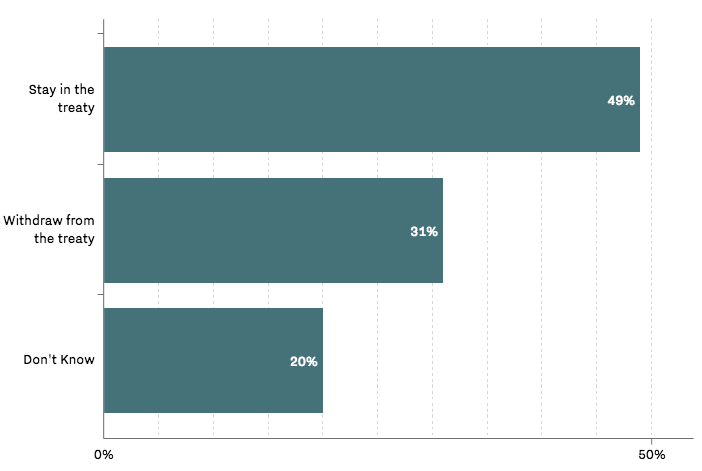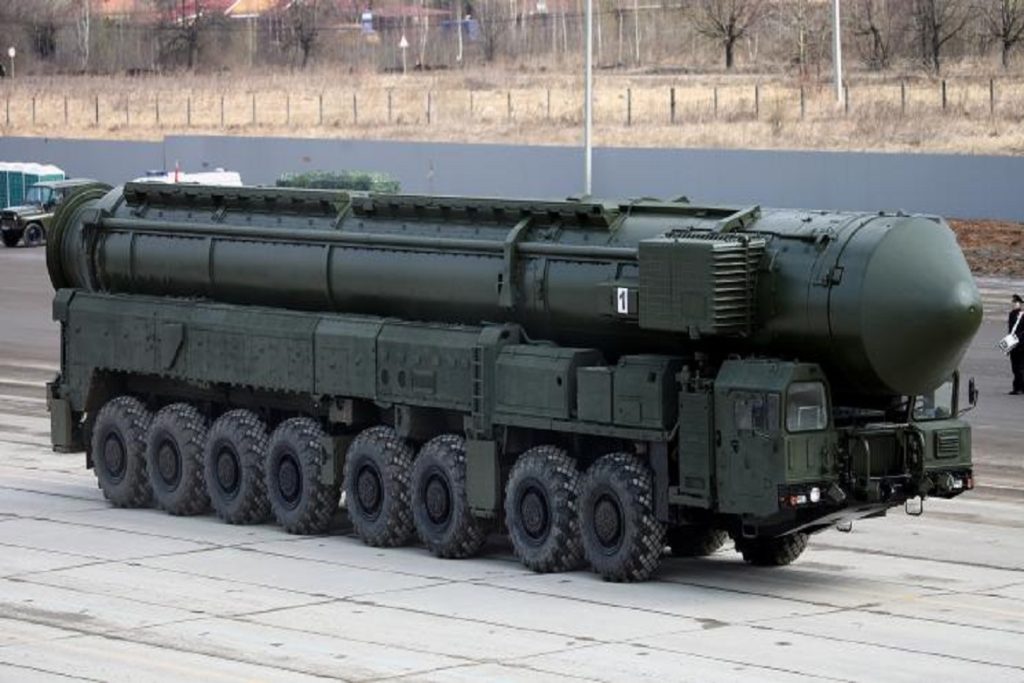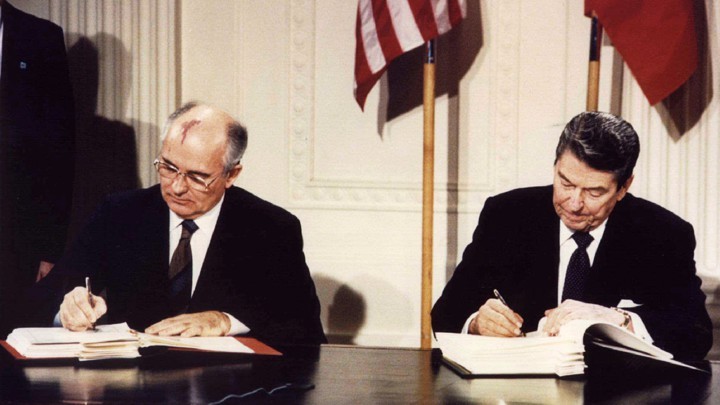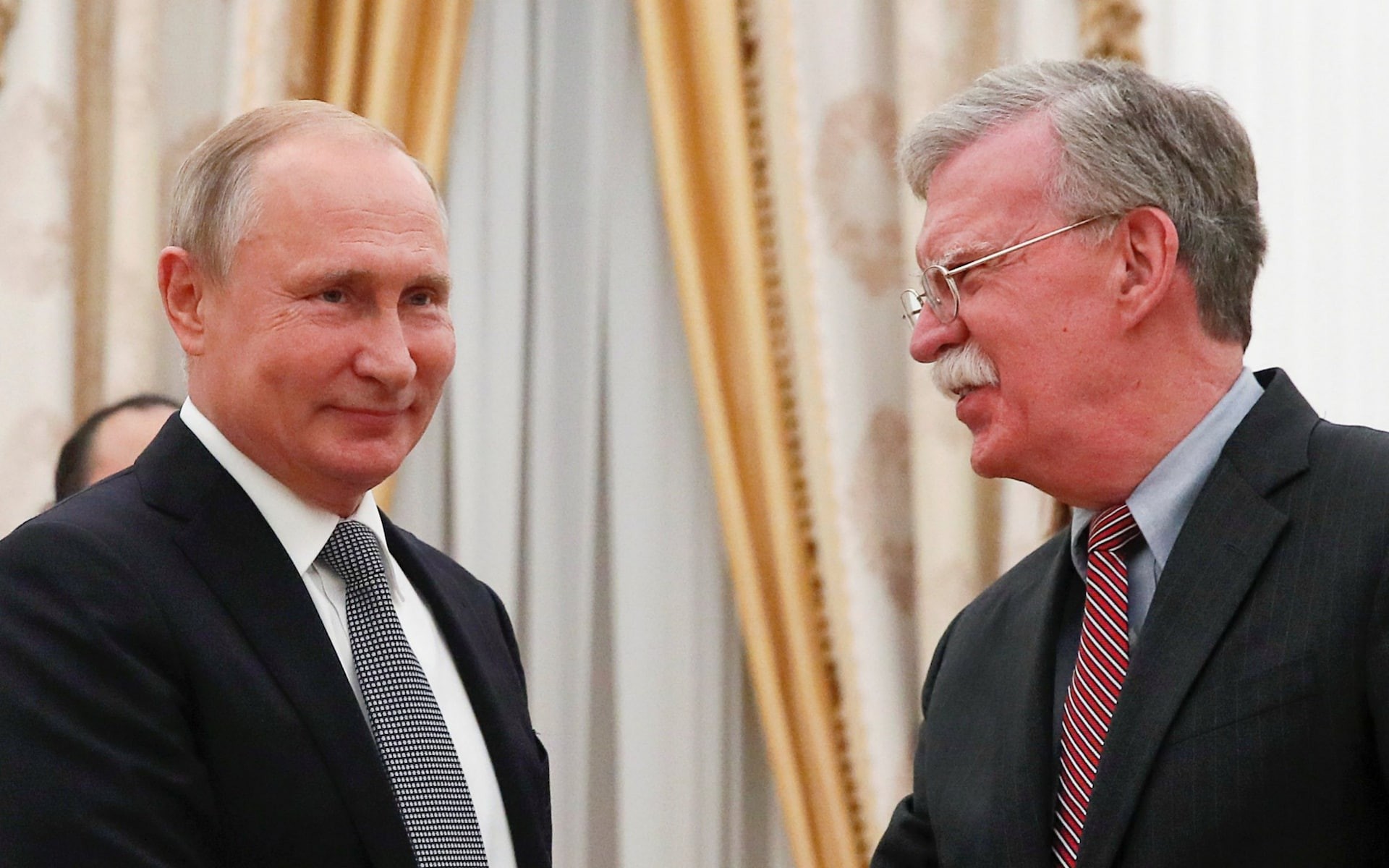By Nahal Sheikh
The arms control treaty between the United States (U.S.) and Russia is a historical three-decade old agreement, officially known as the Intermediate-Range Nuclear Forces (INF) Treaty. It was signed in 1987 by U.S. President Ronald Reagan and Soviet leader Mikhail Gorbachev.
It is a landmark in the historical relationship of U.S. and Russia. It banned all ballistic and cruise missiles, and their launchers, within ranges of 310 to 3,400 miles. In addition, the treaty allowed on-site inspections to scrutinize and verify the destruction processes.
Why was this a landmark achievement? Mainly because it put a pause on a never-ending destructive arms race originating from the Cold War. Moreover, the treaty symbolized recognition from both U.S. and Russia of the destruction perpetrated by the Cold War, and the need to improve relations. The results were outstanding as almost 2,700 missiles and their launchers were destroyed by 1991.
Why is Trump pulling out of the INF Treaty?
The Trump administration has recently accused Russia of repeatedly violating the INF agreement. These accusations have not come up under Trump only. In fact, in 2014, Obama accused Moscow of testing a ground-cruise missile that clearly violated the INF accord. However, Obama did not choose to leave the treaty because European states objected it, especially Germany. They argued leaving the agreement could restart the old arms race, leaving no international actor at peace.
However, accusations against Russia do not stay limited to the U.S., and nor do international actors necessarily feel the same way they did during the Obama era. NATO has made alarming claims. According to NATO’s Secretary General, Jens Stoltenberg:
This treaty is in danger because of Russia’s actions.
In the same line of argument, the U.S. Ambassador to NATO, Kay Bailey Hutchison stated U.S. is willing to give evidence of Russia’s mishandlings to international allies if necessary. Her confidence leaves us leaning towards U.S. and questioning whether Russia is an innocent actor, although Hutchison’s remarks sound more like a threat. In any case, we can see a clear history of accusations of Russia’s INF violations, a phenomenon that does not make Trump’s threat an isolated event.
Trump seems quite adamant about his stance on pulling out of the INF treaty. He claims that after many attempts of bringing Russia in compliance the INF framework, and Russia’s uncompromising reaction, the U.S. is left with no choice. A Trump administration official states:
Despite our objections, Russia continues to produce and field prohibited cruise missiles and has ignored calls for transparency.
American public on the INF Treaty
Public opinion matters more than ever on such serious matters merely to see where people stand if not more. According to a poll carried out by Civil Analytics of 5,643 American voters on 20-22 October, 2018, 49% of persons want to stay within the treaty. In contrast, 31% wish to leave the treaty.

The pre-information during the poll was very informative assuring no misleading information was provided to hinder accurate opinions. The questions included in the poll explained the INF treaty in layman terms, pointed out that Trump is withdrawing from the treaty, and laid out basic arguments for and against leaving the treaty. The division in voting results was alongside partisan lines, meaning those who support Trump voted for leaving and those who support Clinton voted to remain. Of course, the public is unaware of the intricacies of the matter, but the general perspective remains in favor of international arms control.
In combination with larger American public opinion, let’s get some expert opinion on the matter. How do political officials feel about leaving the INF treaty?
Former Energy Secretary Ernest Moniz argues that leaving the treaty could lead to a dangerous path: “[that could arise] by accident, mistake, or terrible miscalculation – to what would be the final failure: the use of a nuclear weapon for the first time in over 70 years.”
However, other experts say the treaty is quite outdated. More importantly, there is emphasis on seeing “no hope” in Russia complying to the treaty regulations. If that is the case, why should the U.S. hold back from doing the same thing, especially since U.S. has apparently historically honored the treaty. Russia is not the only threat. In fact, China is seen as a growing nuclear threat on the international stage – an argument made by Trump’s National Security Advisor, John Bolton. This opinion puts U.S. security on the forefront, a form of security that requires nuclear arms. Rebeccah Heinrichs, Hudson Institute’s nuclear expert, advocates this view too:
Those who constantly insist we don’t need them [nuclear weapons] are spitballing.
Conclusion: rekindling of arms race
Trump’s current attitude towards the INF treaty reflects his administration’s larger stance towards international agreements, which is usually oppositional. Similar scenarios were seen when he pulled out of the Iran Nuclear Deal recently. Where he stands on arms-control is no surprise, but then again, the INF treaty and Iran Nuclear Deal are not ditto to one another. And it is very difficult to predict exactly what will happen if the INF treaty is dismantled, or not. So far, it seems both United States and Russia are excited to once again partake in an arms race that appears to have only experienced a brief pause.









